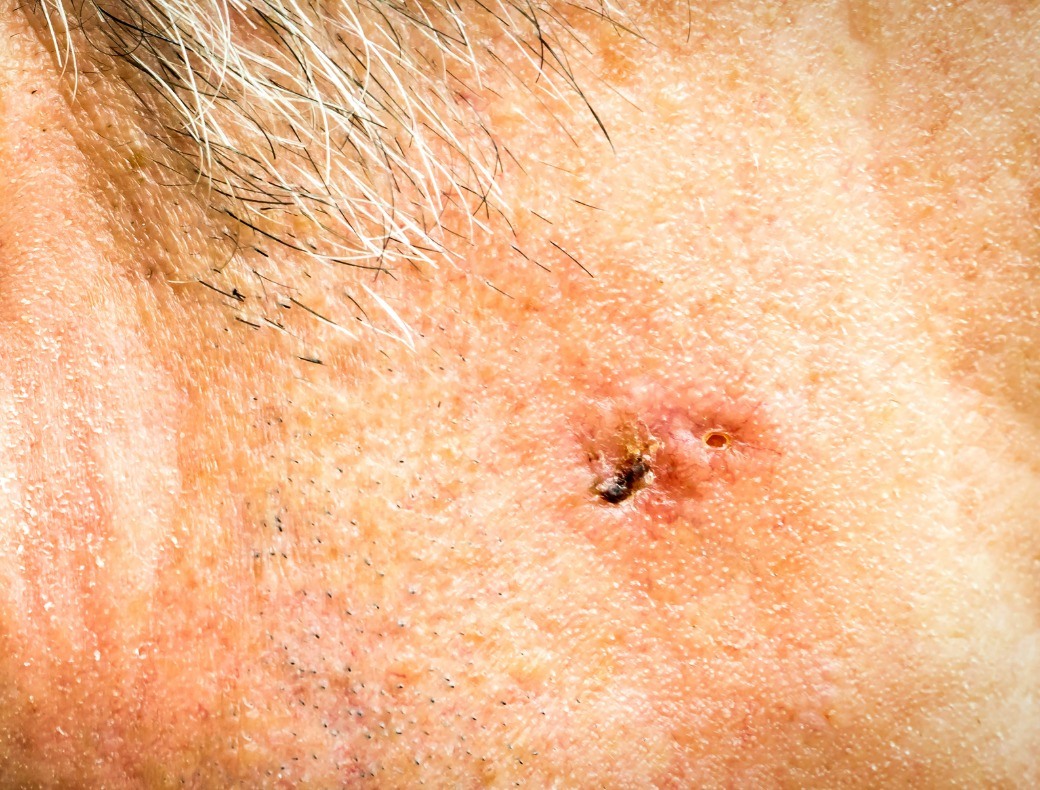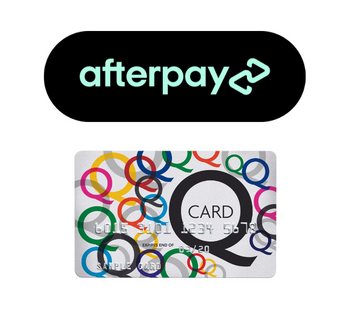
BCCs arise in otherwise normal appearing skin, unlike squamous cell carcinomas (SCCs), which often arise within pre-existing solar keratoses. They usually grow slowly over months or years so they can vary in size from a few millimetres to several centimetres in diameter.
Basal Cell cancers can vary greatly in their appearance, but people often first become aware of them as a scab that bleeds occasionally and does not heal completely. Some BCC are very superficial and look like a pink/red flat mark, and others have a pearl-like rim surrounding a central crater.
The treatment for a BCC depends on its type, size and location, and the number to be treated, however most BCCs are treated surgically. Regular skin assessments with a specialist are recommended following an initial diagnosis, to check for new lesions and recurrence.
The cause of skin cancer, like other forms of cancer, is not completely known. Excessive exposure to sunlight is the single most important factor associated with the development of skin cancers. Consequently, skin cancers most commonly develop on the face and the arms, the most sun-exposed parts of the body.
If you’re diagnosed with skin cancer, your treatment options depend on several factors including the location of the cancer, its size and previous therapies used. At Skin Institute, you’ll find both simple and advanced skin cancer treatment and management, with specialty surgeries for prominent areas like the face.
Mohs micrographic or PDEMA surgery is the best method of removing skin cancer and ensuring that the skin cancer is completely excised at the time of procedure. Mohs micrographic/PDEMA surgery has the highest cure rates for skin cancer (up to 99% when compared with other treatments for skin cancer***) and optimises the end cosmetic result.
At Skin Institute, we understand that skin cancer can be an intimidating diagnosis to come to terms with. Our expert team of qualified specialists are trained in the management of skin cancer, offering everything from assessment to post-treatment care.
Whether you just want peace of mind about your skin health, or you’re concerned about a specific mole or lesion, our team of skin cancer specialists will provide you with expert care – your partner along the way to skin health. We’ve treated over 20,000 patients with skin cancer over the last ten years, so we know just how common skin cancer is. If you do find yourself with a form of skin cancer, you’re definitely not alone.
If you have just one mole or lesion that seems concerning, you can book a Spot check to have it assessed.
Alternatively, you can book a full body skin cancer consultation with one of our Nurse Dermoscopists or Skin Cancer Doctors for a top to toe assessment.

At Skin Institute, we accept cash, Eftpos or credit cards. There are also easy ways to spread your payments with QCard or Afterpay.